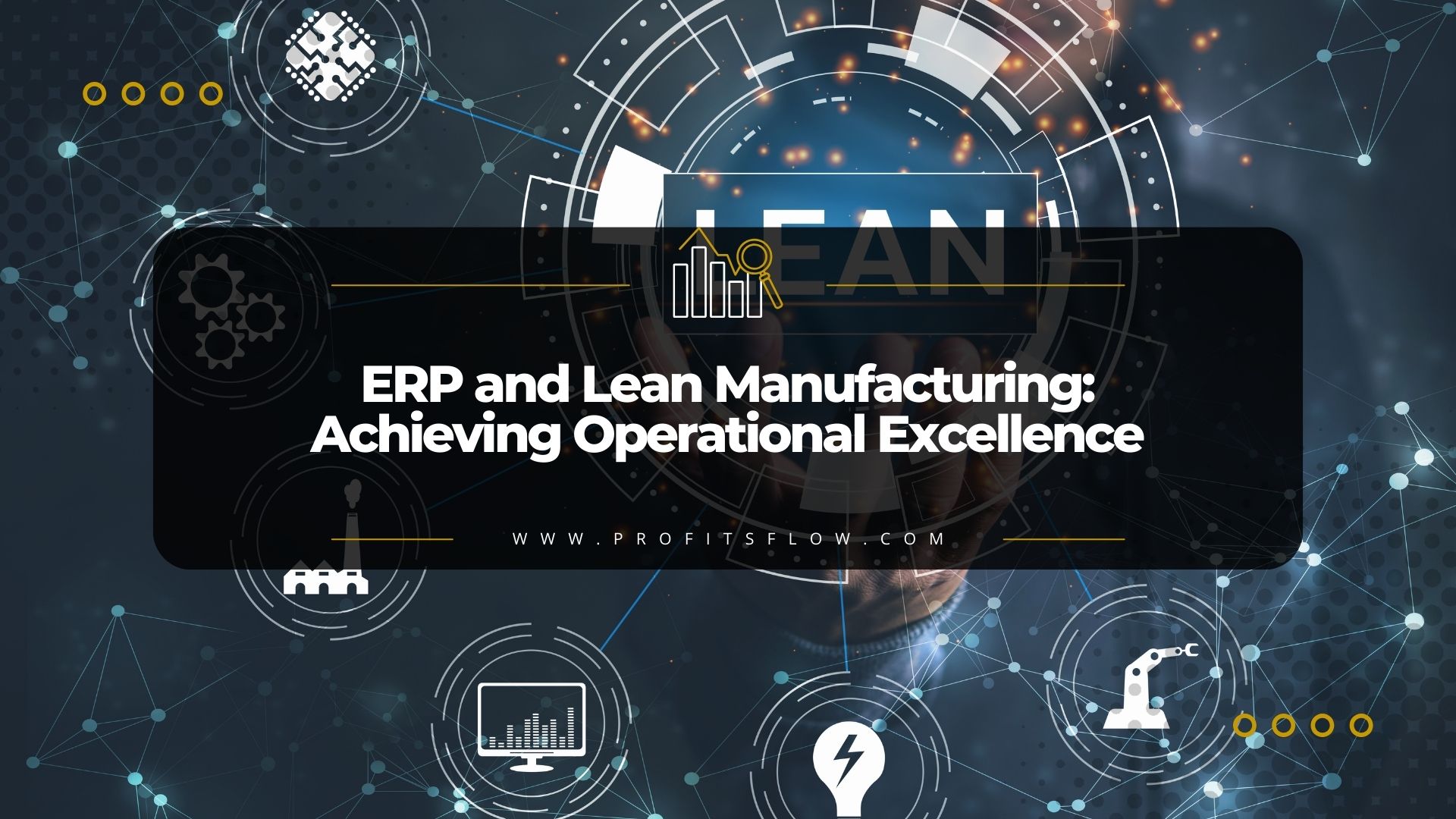Streamlining Success with ERP
In today’s fiercely competitive manufacturing landscape, operational excellence is not just an aspiration but a necessity. Manufacturers are constantly seeking ways to streamline their processes, reduce waste, and improve efficiency. One methodology that has gained significant traction in the manufacturing world is ERP and Lean Manufacturing, and when combined with the power of ERP (Enterprise Resource Planning) systems, it can lead to remarkable results. In this blog, we’ll explore how ERP and Lean Manufacturing work together to achieve operational excellence.
Before delving into the synergy between ERP and Lean Manufacturing, let’s briefly review what Lean Manufacturing entails. Lean manufacturing entails pursuing continuous improvement, analysing your flow of materials which helps organisations in minimising inventory and producing items only as they are needed, and organising the workplace for efficiency and cleanliness.
The Role of ERP in Lean Manufacturing
ERP systems are powerful tools that integrate various business processes and functions into a unified platform. When implemented strategically, ERP can complement Lean Manufacturing efforts in several ways:
- Data Visibility and Transparency
ERP systems provide real-time visibility into key performance indicators (KPIs) and data across the manufacturing process. This transparency allows Lean practitioners to identify waste, bottlenecks, and areas for improvement more easily.
- Streamlined Processes
ERP systems help streamline and standardise processes by automating tasks and reducing manual data entry. This aligns with Lean principles by eliminating non-value-added activities.
- Improved Demand Forecasting
Accurate demand forecasting is crucial in Lean Manufacturing to minimise overproduction. ERP systems use historical data and predictive analytics to enhance demand forecasting accuracy.
- Inventory Management
Lean Manufacturing aims to reduce inventory waste. ERP systems enable precise inventory management, helping manufacturers maintain optimal stock levels while minimising carrying costs.
- Enhanced Communication
Effective communication is vital in Lean environments. ERP systems facilitate communication between different departments, ensuring that everyone is on the same page and working towards common goals.
- Data-Driven Decision-Making
Lean Manufacturing relies on data-driven decision-making. ERP systems provide comprehensive data analytics and reporting tools, enabling informed decisions to drive continuous improvement.
- Scalability
As manufacturing businesses grow, ERP systems can scale with them. This scalability ensures that Lean principles can be applied consistently across an organisation’s expanding operations.
Key Takeaways
The integration of ERP systems with Lean Manufacturing principles can significantly contribute to achieving operational excellence in the manufacturing sector. By fostering transparency, efficiency, and data-driven decision-making, manufacturers can reduce waste, improve quality, and enhance customer satisfaction.
However, it’s crucial to recognise that successful implementation requires careful planning, employee training, and a commitment to continuous improvement. Furthermore, organisations must tailor their ERP systems to align with their specific Lean objectives and processes.
In conclusion, the partnership between ERP and Lean Manufacturing is a recipe for success in today’s competitive manufacturing landscape. By combining the principles of Lean with the capabilities of ERP systems, manufacturers can achieve operational excellence, reduce costs, and maintain a competitive edge in the global marketplace.
Are you ready to embrace the synergy between ERP and Lean Manufacturing in your organisation? You can begin your journey today by contacting us here in Profitsflow. Our ERP software solution EFACS E/8 allows manufacturing and field service companies to completely transform their organisations. To find out more you can call us on +353 (0)1 244 9580 or email us at info@profitsflow.com.
